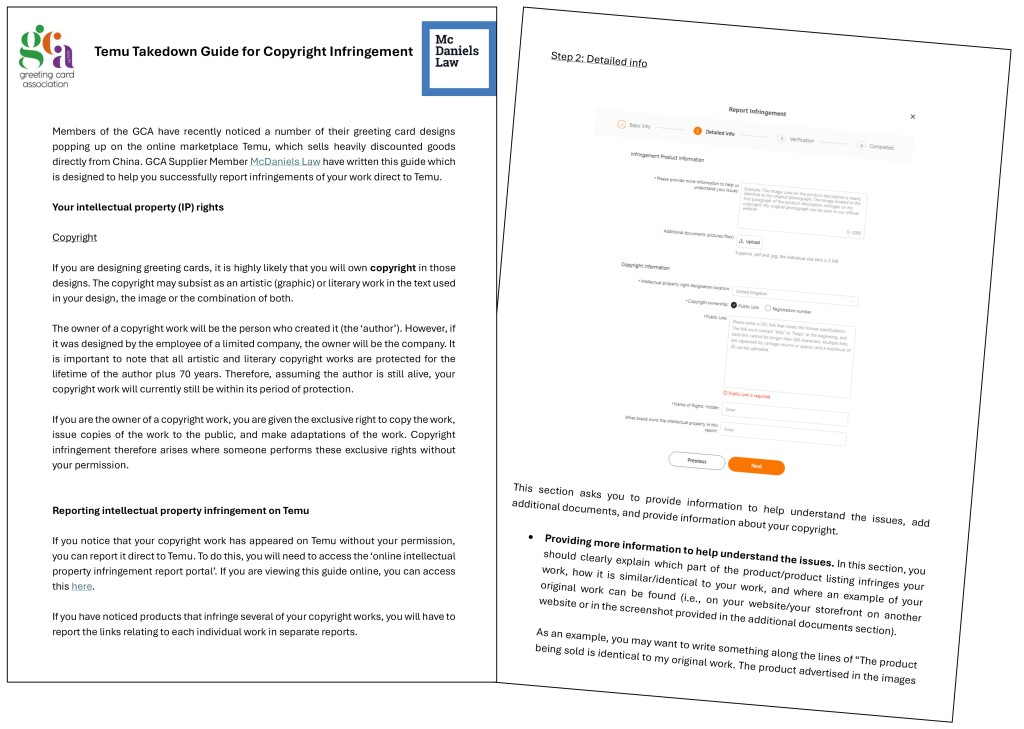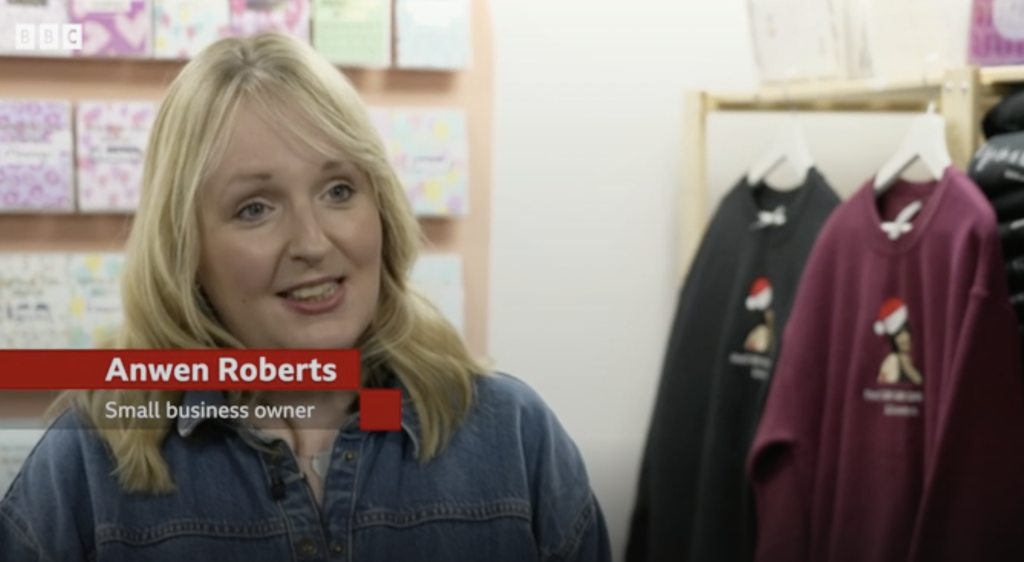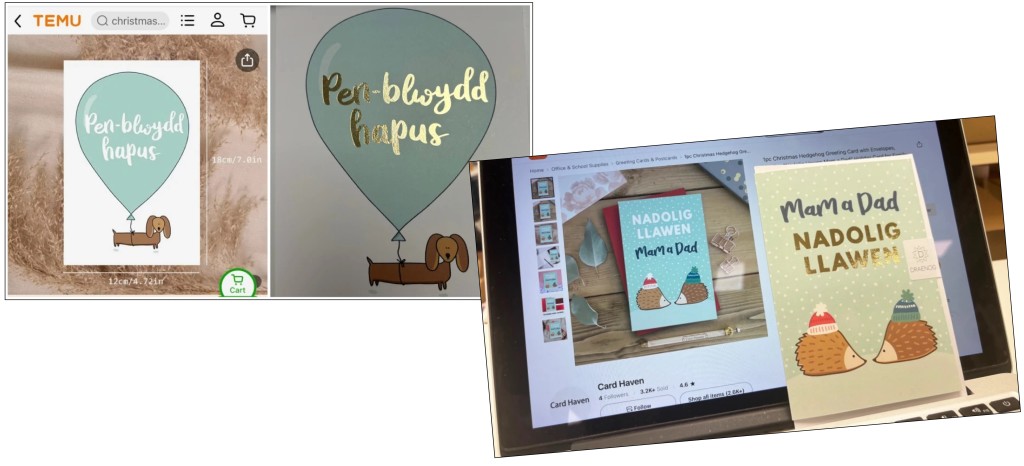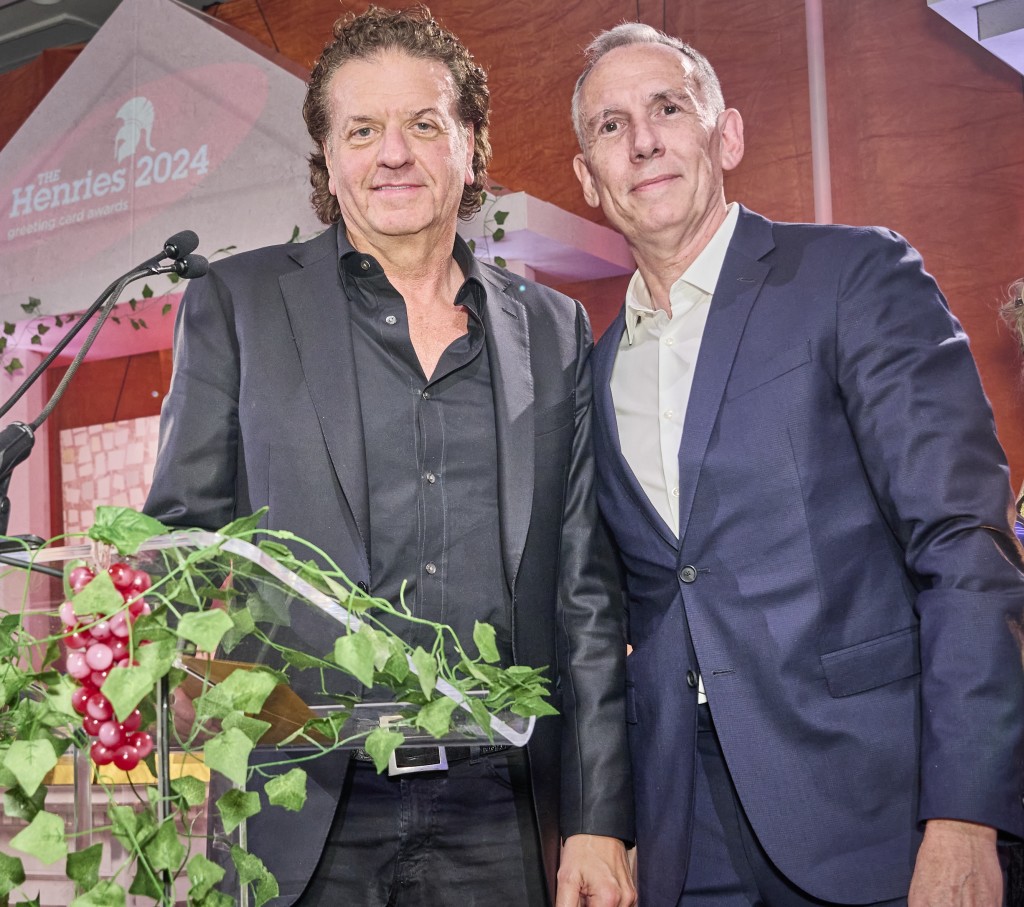McDaniels Law releases step-by-step info via GCA as BBC news covers issue
As the Temu copying issue hit BBC news, a seven-page takedown guide is now available for GCA members to download thanks to IP specialists McDaniels Law.
The guide, which is available here, gives all the information in a step-by-step format for publishers and creatives to report infringements to the Chinese-owned online marketplace, and insist their plagiarised works are taken down.

As well as drawing up the guide, GCA supplier member McDaniels has also offered a £360 plus VAT fixed price deal if its services are needed to deal with third-party sellers on the platform relisting copied products under different names, as MD Kelly Hudson explained: “Generally, Temu will take a letter from a lawyer more seriously. Therefore, if you are having trouble getting infringing products taken down, please get in touch.”
The move follows the PG Buzz stories revealing how publishers have banded together to beat the copycats, McDaniels has taken on the matter as a case study – already succeeding in getting Dandelion Stationery’s copies removed – and online greetings marketplace Thortful is supporting creatives in the fight.

And this week the copycat battle hit the BBC news as it covered small publisher Draenog’s success at getting Temu, which is owned by Chinese giant PDD Holdings and was valued earlier this year at £117billion ($150bn), to remove owner Anwen Roberts’ copied designs from sale on the site.
Appearing on her regional station earlier in the week and this morning, 8 November, on BBC Breakfast, Arwen told the broadcaster it was a “massive shock” to see her work being sold online without her permission, and added: “It just breaks your heart a bit to know someone has used your work, put it out there and is potentially making money from something that I, as a small business, have created.
“They can just take hundreds of thousands of images, take them off the internet, create some text, do it really quickly and they miss out the bit of weeks and months and hours of working with small businesses like I do and putting a lot of time and energy in.”

Explaining that the onus on the copyright holder to report the issues is frustrating and time-consuming, the BBC reported the Intellectual Property has called IP infringement both a “local and global challenge” and it works to “help tackle the threat it poses to businesses and consumers”.
Temu told the BBC it had investigated the Draenog case and “removed the infringing products that were found”, adding: “For sellers who repeatedly violate these rules or commit serious infringements, we permanently ban them from the platform and remove all of their products.”
And the marketplace said it has “invested heavily” in IP rights protection, expanded its IP team, and introduced an IP portal and brand protection centre to increase the effectiveness and efficiency of handling infringement, claiming “as a result, we resolve over 99% of takedown requests within just a few days, which is faster than the industry average”.

Copyright infringement and the plagiarising of card designs isn’t just an issue for UK publishers and creatives, the US GCA is also aiming to take action, and has just send a short survey to all members, looking for specific examples and trying to establish the numbers affected.
President Andy Meehan said: “Online theft of card designs and sales of counterfeit cards by foreign entities is a growing problem for publishers. Members are reporting an increasing problem with their designs being illegally reproduced and sold, and the GCA is seeking member input to enable us to act in the best interests of our industry.”






















